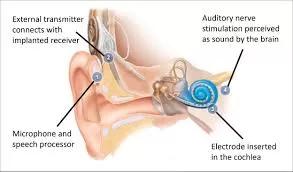Recent findings presented at the European Association of Urology (EAU) Congress 2024 suggest that a novel urine biomarker test may significantly reduce the number of cystoscopies required in high-risk patients with bladder cancer. The research, conducted by Dreyer et al, also indicates that the urine biomarker test does not pose an increased risk of cancer recurrence compared to standard flexible cystoscopy.
Bladder cancer patients, particularly those at high risk with aggressive forms of the disease, often undergo frequent cystoscopies for surveillance purposes. However, these procedures can be uncomfortable and invasive, leading researchers to explore alternative methods for cancer detection and monitoring.
Dr. Thomas Dreyer, a researcher at the Bladder Cancer Research Team in the Department of Urology at Aarhus University Hospital, emphasized the importance of providing patients with effective yet less invasive monitoring options. He highlighted the study’s focus on reducing patient discomfort while ensuring reliable cancer surveillance.
The study, one of the first to evaluate the efficacy of the urine biomarker test called Xpert Bladder Cancer Monitor in high-risk bladder cancer, aimed to assess its ability to reduce the need for cystoscopies while detecting signs of cancer recurrence. Unlike previous studies, this research included randomized trials to evaluate the test’s impact in clinical settings.
Researchers randomly assigned 313 high-risk bladder cancer patients to undergo either the standard three cystoscopies per year or one cystoscopy followed by two urine biomarker tests per year. The urine biomarker test, designed to monitor cancer recurrence by measuring levels of five target mRNAs, showed promising results in reducing the frequency of cystoscopies.
After 2 years, the study found that only 44% of follow-up appointments among patients in the urine biomarker test group required a cystoscopy, compared to nearly 100% in the standard-treatment group. Additionally, the urine biomarker test effectively detected cancer recurrence in some patients before visible signs were observed through cystoscopy.
Dr. Joost Boormans, Professor of Urology at the Erasmus University Medical Centre, emphasized the significance of reducing unnecessary cystoscopies, particularly in aging populations where bladder cancer incidence may rise. He underscored the potential of the urine biomarker test to alleviate healthcare resource strain and improve accessibility to care.
The research, funded by Cepheid, offers promising insights into the future of bladder cancer surveillance and underscores the importance of exploring innovative approaches to cancer detection and monitoring. As the study progresses, further validation of the urine biomarker test’s efficacy in clinical practice is anticipated, potentially paving the way for its widespread adoption as an alternative to conventional cystoscopy-based surveillance.












